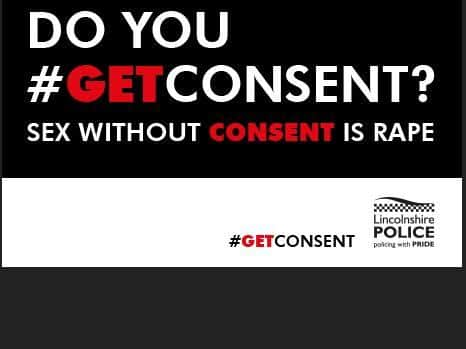Police launch Consent Campaign for party season


A statement explains: "As the night time economy gets busier, people get merrier, lines get blurred. There is no room for ambiguity when it comes to sexual consent. You, or your sexual partner, may be too intoxicated to consent. An unconscious person cannot consent."
This is an ongoing campaign which aims to remind people of what consent means and their obligation to get it. At the same time, police want to encourage reporting and highlight the support available for victims of sexual assault.
Advertisement
Hide AdAdvertisement
Hide AdDetective Supt Jon McAdam is Head of the Protecting Vulnerable Persons Unit. He said, "When it comes to consent, you need to be crystal clear. Consent is not something that can be implied by behaviour, attitude or clothing.


"A person has the right to know exactly what they are consenting to and they have the right to change their mind at any time, for any reason. Consent must be enthusiastic, given freely, informed, specific and reversible."
Police and Crime Commissioner Marc Jones is also backing the campaign. He said, "I wholeheartedly support any campaign which is designed to protect our residents and prevent crime.
"Sexual crimes have a devastating effect on victims and we must do everything we can to educate people to understand that consent must be clear and certain."
ABOUT CONSENT
Advertisement
Hide AdAdvertisement
Hide AdSex without consent is rape. There is no place for ambiguity, presumption or pressure.
Sexual consent relies on the person having freedom and capacity to agree to sexual activity. It is not the absence of a ‘no’.
Consent must be:
Enthusiastic – a partner should not be worried, reluctant or unsure.
Given freely – not pressured, pestered, bullied, guilt tripped, intimidated, or threatened.
Advertisement
Hide AdAdvertisement
Hide AdInformed – you can only consent if you know and understand what you are consenting to.
Specific – consent for one thing, is not consent for anything else; consent one day is not consent for any other occasion.
Reversible – you can change your mind at any point.
Social media
The Consent at Christmas Campaign will run from today (12 December) to the 16 December. We will be using social media to promote the campaign throughout this period. Please help spread the message by sharing our posts on Facebook and retweeting on Twitter using our hashtag #GetConsent
HAVE YOU BEEN AFFECTED?
A vital part of the campaign is about building trust and confidence in victims and highlighting the channels available for support. These agencies can help you regardless of whether you decide to report your assault to Police. For more information see our advice section on rape and sexual assault.
If you need help;
For Police – Call 101 (or 999 in an emergency)
Advertisement
Hide AdAdvertisement
Hide AdFor Spring Lodge – Lincolnshire’s Sexual Assault Referral Centre – call 01522 524402 (or 0303 1234 000 for out of hours)
For Lincolnshire Rape Crisis – support for anyone affected by any form of sexual violence – call 0800 33 4 55 00
For Victim Lincs – advice and support for Lincolnshire victims – call 01522 947510
TEA AND CONSENT
People who had a cup of tea once, don’t necessarily want tea again. You don’t pour it down their throat saying, “…you wanted tea last night!”
Advertisement
Hide AdAdvertisement
Hide AdPeople who aren’t sure if they want tea, are not obliged to drink the tea just because you made it.
People may say yes to tea, then change their mind.
People who said yes to a tea with milk, are not saying yes to a tea with milk and five sugars.
People aren’t obliged to have a cup of tea because their partner is asking them to.
People are not implying that they want a cup of tea by their clothing, attitude or behaviour.
People who are intoxicated may not have capacity to decide or communicate if they want the tea or not.
Finally… unconscious people don’t want tea.